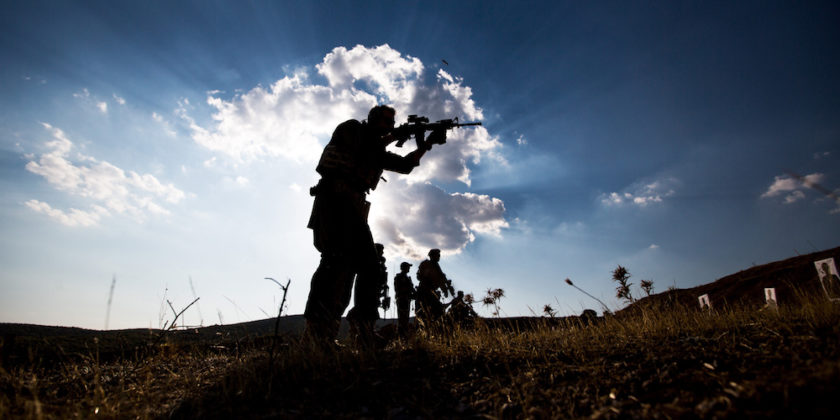

President Donald Trump has vowed to overturn what he called “ridiculous” changes to the Navy SEAL ethos and creed for special warfare combatant crewmen (SWCC) to make both gender-neutral.
Task & Purpose reported on Sept. 29 that the words such as “man” and “brotherhood” in the ethos and creed had been replaced by gender-neutral language. For example, “common man” in the creed was changed to “common citizens.”
“The previous versions of the SEAL Ethos and SWCC Creed were written prior to the law allowing women to serve as operators in Naval Special Warfare,” Lt. Cmdr. Matthew Stroup, a spokesman for Naval Special Warfare Command, said Tuesday.
“Updates were overdue,” Stroup added, noting that the changes were “favorably endorsed” by each of the unit’s major commanders and command master chiefs. The changes were first reported by American Military News.
But on Thursday, the president tweeted that the changes were unacceptable.
“I will be overturning this ridiculous order immediately!” Trump tweeted.
Spokesmen for the Chief of Naval Operations and Naval Special Warfare Command did not immediately respond to a request for comment.
The changes, which were carried out in August, were modest and impacted just a handful of words. In an Aug. 3 memo announcing the changes, Rear Adm. Collin Green said it would provide “more inclusive language” and “better reflect our diverse ranks now and into the future.”
The SWCC creed, for example, originally mentioned an “elite brotherhood of sailors” standing ready in our nation’s time and need, but was changed to an “elite group of maritime warriors.”
The SEAL Ethos, meanwhile, declares its special breed of warriors are “common citizens” with an uncommon desire to succeed, in contrast to the “common man” of the original.
“Forged by adversity,” the ethos continues, “they stand alongside America’s finest special operations forces to serve their country, the American people, and protect their way of life. I am that warrior.” (Original: “I am that man.”)
Additionally, the final line of the ethos, which formerly opened with “brave men,” was changed to “brave SEALs,” which, it continues, “have fought and died building the proud tradition and feared reputation that I am bound to uphold. In the worst of conditions, the legacy of my teammates steadies my resolve and silently guides my every deed. I will not fail.”
The Navy has not yet had a female SEAL or special warfare combatant crewman, though a handful of women have attempted training since ground combat restrictions were lifted in 2016. Both specialties require months of physically and mentally-demanding training at the naval special warfare center in Coronado, California.
In December, a female Navy officer completed the two-week SEAL officer assessment and selection but was not selected for a SEAL contract, Military.com reported. And that same month, a Navy official confirmed that three enlisted women were at “various stages” of the 37-week training pipeline for special warfare combatant crewmen.
“All Naval Special Warfare officer designators, enlisted ratings, and missions are open to all qualified service members — men and women,” Stroup said. “Women have worked in critical roles in NSW since the 1990s, serve in numerous leadership positions, and deploy with [special operations forces] teams.”